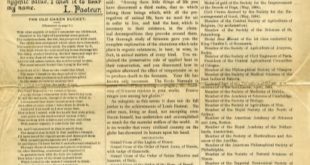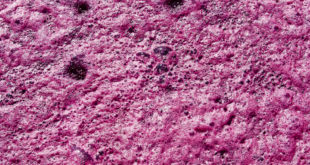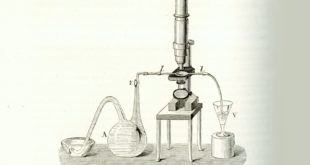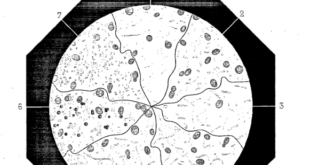Taken from the Annual Record of Science and Industry for 1874.
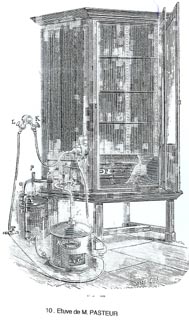
Pasteur, the eminent French chemist, has recently given a method for preparing an unalterable beer; that is, a beer which will not turn sour or spoil upon keeping. It is important to consider two facts as preliminary to this process. In the first place, says Pasteur, all the objectionable changes which beer or must undergo are due to the action of minute microscopic organism, vibriones, bacteria, etc., whose germs are carried in the air, are contained in the materials used, or are found adhering to the utensils employed in the brewery. In the second place, under all the methods of brewing commonly employed, every must, every yeast, and every beer contain these germs. Without their presence beer can only undergo alcoholic fermentation, and possibly some minor changes which may in certain cases improve its quality and in other cases produce nothing worse than vapidity. The thing to be done, therefore, is to prepare a must free from objectionable germs, and to ferment it by means of a yeast similarly pure. Pasteur proceeds as follows:
The must, prepared by the ordinary methods, is heated very hot in order to destroy all germs contained in it. It is then enclosed in a vat provided with a tight cover, whose interior communicates with the outer air only through two vertical tubes.At one of these tubes a current of carbonic acid gas is allowed to enter, its excess being discharged by the other.In this vat, thus sheltered from all germs which might otherwise get in from the air, the must is allowed to cool.The next step is to add the yeast; and the main difficulty is to obtain this pure.This is done in a way which Pasteur does not describe in detail, but which depends upon the fact that the yeast plant multiplies more rapidly in the presence of atmospheric oxygen than in carbonic acid, while almost the contrary is true of the objectionable germs.A little of this pure yeast once obtained, it can be preserved indefinitely, and permitted to multiply in apparatus so constructed as to shelter it from the germs floating in the air.The yeast, free from these germs, being added, without contact of the air, to the must likewise free from germs, alcoholic fermentation sets in.A beer is thus obtained which, when furnished, no longer offers a favorable medium for the development of the above-mentioned microscopic organisms.It can be preserved, as is usual, in barrels or bottle, and for an indefinite time, even without the use of ice.Even high temperatures do not affect it unfavorably.It undergoes only those changes which are commonly produced by age, and which are positive improvements rather than the reverse.The employment of ice-houses is thus avoided, the expense of the ice saved, and beer of superior quality produced.–6 B, November 17, 1873, 1140
 Pasteur Brewing Louis Pasteur – Science, Health, and Brewing
Pasteur Brewing Louis Pasteur – Science, Health, and Brewing 